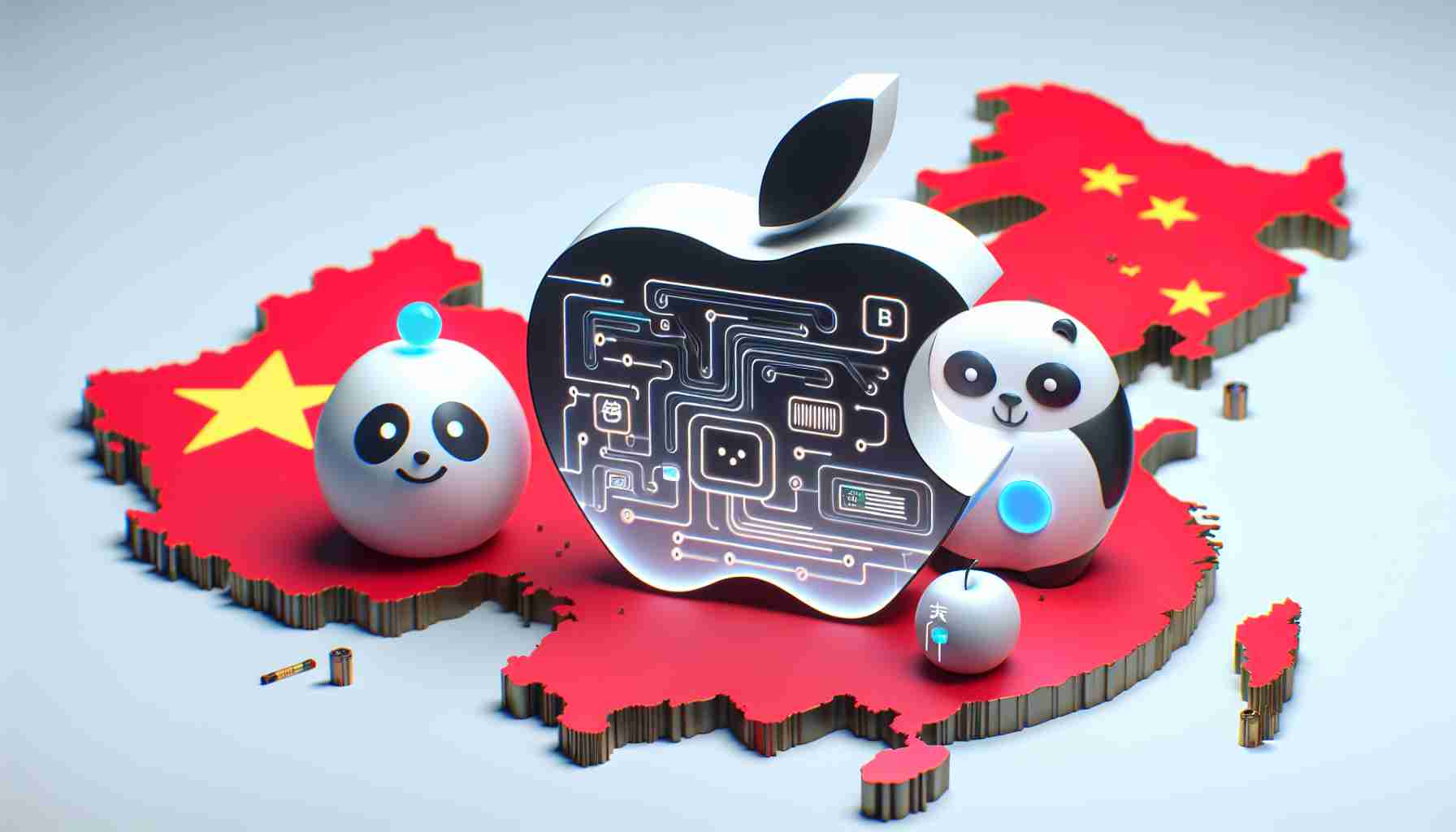Apple is actively exploring potential collaborations with Baidu, a Chinese tech giant, to leverage its generative artificial intelligence (AI) technology for Apple devices in China. This strategic move comes as Apple aims to enhance its AI capabilities and navigate the country’s regulatory landscape.
China’s stringent regulations require that generative AI models undergo scrutiny from the country’s cyberspace regulator before being publicly launched. Although more than 40 generative AI models, including Baidu’s Ernie Bot, have received approval since the introduction of this rule in August, no models developed by foreign companies have yet been approved.
The Wall Street Journal (WSJ) reported on Friday (March 22) that Apple and Baidu are in preliminary talks, although the discussions are tentative. This potential partnership underscores the increasing significance of AI in the consumer-electronics market. Apple has been investing in developing its own generative AI model, primarily to enhance features such as voice assistants, photo editing, and email. However, analysts suggest that the company may need to further innovate to stay ahead of competitors in the AI space.
Apple faces tough competition in China, its largest overseas market, particularly from domestic rivals like Huawei Technologies. Recent data showed a 24% decline in iPhone sales within the first six weeks of this year, while Huawei’s phone sales increased by 64%. In an effort to strengthen its presence, Apple has doubled its research and development team in China over the past five years and plans to establish a new lab for research and testing of its product lines.
Recognizing the significance of the Chinese market, Apple CEO Tim Cook recently visited China and will participate in the upcoming China Development Forum. This demonstrates the company’s commitment to the market and its intention to overcome compliance burdens and compete more effectively with local rivals. A partnership with Baidu could also help Apple meet the growing demand for AI-enabled devices in China.
In addition to the potential collaboration with Baidu, Apple is reportedly in discussions to incorporate Google’s AI into iPhones. The company is negotiating to license Google’s Gemini AI models for new iPhone features that are set to be released this year. Furthermore, Apple has had talks with OpenAI about utilizing their AI model, highlighting their proactive approach in exploring various AI partnerships.
FAQ:
Q: What is generative artificial intelligence (AI)?
A: Generative AI refers to the field of artificial intelligence that focuses on creating models that can generate new content, such as text, images, or videos, based on patterns and training data.
Q: What are the challenges of introducing generative AI models in China?
A: In China, generative AI models need to be vetted by the country’s cyberspace regulator before being publicly launched. This introduces a regulatory hurdle that foreign companies must navigate to gain approval.
Q: How has Apple been investing in AI development?
A: Apple has been investing in the development of its own generative AI model to enhance features like voice assistants, photo editing, and email.
Sources:
– The Wall Street Journal
– PYMNTS
Apple’s potential collaboration with Baidu in leveraging generative AI technology for its devices in China highlights the growing significance of AI in the consumer-electronics market. With China’s strict regulatory landscape, generative AI models require approval from the country’s cyberspace regulator before being publicly launched. While several models developed by Chinese companies have received approval, no models from foreign companies have yet been approved.
In an effort to enhance its AI capabilities and overcome competition in China, Apple is exploring partnerships with Baidu and Google. Talks with Baidu are in preliminary stages, and collaborating with the Chinese tech giant could help Apple meet the rising demand for AI-enabled devices in China. Additionally, negotiations with Google are centered around licensing Google’s Gemini AI models for new iPhone features set to be released this year.
Apple faces tough competition in China’s consumer-electronics market, particularly from domestic rivals like Huawei Technologies. The decline in iPhone sales within the country and the increase in Huawei’s phone sales indicate the need for Apple to further innovate in the AI space. To strengthen its presence, Apple has doubled its research and development team in China over the past five years and plans to establish a new lab for research and testing.
Recognizing the importance of the Chinese market, Apple CEO Tim Cook has visited China recently and will participate in the upcoming China Development Forum. This illustrates Apple’s commitment to the market, its intention to navigate compliance burdens, and its desire to compete more effectively with local rivals.
As Apple explores potential collaborations with Baidu and Google, it highlights the proactive approach the company is taking in exploring various AI partnerships. These partnerships will not only enhance Apple’s AI capabilities but also position the company to meet the demands of the rapidly growing AI market in China.
Sources:
– The Wall Street Journal
– PYMNTS
The source of the article is from the blog qhubo.com.ni

